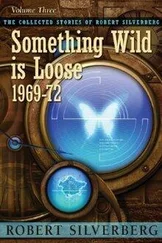Project Itoh - Genocidal Organ
Здесь есть возможность читать онлайн «Project Itoh - Genocidal Organ» весь текст электронной книги совершенно бесплатно (целиком полную версию без сокращений). В некоторых случаях можно слушать аудио, скачать через торрент в формате fb2 и присутствует краткое содержание. Год выпуска: 2012, ISBN: 2012, Издательство: Haikasoru/VIZ Media, Жанр: Старинная литература, на английском языке. Описание произведения, (предисловие) а так же отзывы посетителей доступны на портале библиотеки ЛибКат.
- Название:Genocidal Organ
- Автор:
- Издательство:Haikasoru/VIZ Media
- Жанр:
- Год:2012
- ISBN:9781421550886
- Рейтинг книги:4 / 5. Голосов: 1
-
Избранное:Добавить в избранное
- Отзывы:
-
Ваша оценка:
- 80
- 1
- 2
- 3
- 4
- 5
Genocidal Organ: краткое содержание, описание и аннотация
Предлагаем к чтению аннотацию, описание, краткое содержание или предисловие (зависит от того, что написал сам автор книги «Genocidal Organ»). Если вы не нашли необходимую информацию о книге — напишите в комментариях, мы постараемся отыскать её.
Genocidal Organ — читать онлайн бесплатно полную книгу (весь текст) целиком
Ниже представлен текст книги, разбитый по страницам. Система сохранения места последней прочитанной страницы, позволяет с удобством читать онлайн бесплатно книгу «Genocidal Organ», без необходимости каждый раз заново искать на чём Вы остановились. Поставьте закладку, и сможете в любой момент перейти на страницу, на которой закончили чтение.
Интервал:
Закладка:
The people who lived and worked here were the so-called laundry caste. A subsection of the untouchable caste, which was really no more than an umbrella term for various so-called untouchable professions. People born here spent their entire lives doing other people’s laundry. Social mobility was more or less unheard of.
This was another one of the reasons why the US didn’t intervene more proactively in the postwar India reconstruction. They would have had to deal with these messy human rights issues head-on. As it was, the governments that did intervene—Europe, Singapore, Japan—soon arrived at an unofficial policy of turning a blind eye to whatever entrenched abuses there were.
Leland and I decided to go and have a look at the railway that the New India government would be using to transport us during the final stages of the plan we were about to embark upon. We climbed to the top of a knoll on the outskirts of Mumbai, and from there we could look down over the sprawling slums that engulfed the train line. There was a train speeding through at that moment, showing no sign of slowing down as it powered its way through the shantytown. Leland was visibly shocked by how little concern people seemed to pay the tons of speeding steel flying past them. It was almost as if they had a death wish, but in fact they were just supremely unconcerned; the old men, children, young mothers, all shades of humanity slept, ate, and did their business right next to the tracks.
“Doesn’t the way the train runs through the slums make you think of Moses parting the Red Sea, sir?” Leland asked as he surveyed the scene from the top of the hill.
The slums used anything and everything as material—all kinds of trash were appropriated and incorporated. Galvanized iron, cardboard, hay, MDF, newspapers. The cornucopia of life that surrounded the tracks was like a flattened low-tech version of Kowloon.
Paupers and war orphans seemed to be drawn to the few working railroads that had survived the war. These refugees were the cholesterol clogging up the arteries of the train tracks. If trains were the lifeblood, then the people did actually cause accidents that stopped the flow of blood. The residents of the slums had no qualms about crossing the tracks or performing their bodily functions over them. It wasn’t uncommon for a person to be hit by a train as he squatted down to take his morning shit. The Mumbai municipal authorities did what little they could for the refugees of society to try and keep them out of harm’s way, but there were simply too many of them, and they kept on returning to the railroads no matter what the authorities did.
As bad as things were now, they had been worse. Before the UN intervened, postwar India had been teetering on anarchy. Its decimated industry showed no signs of life, and most of India’s famed engineers and scientists had died in the war. Before the UN accords took place, this country had been a Mad Max world, only greener.
A message arrived for me, flashing up in my AR contacts. The subject line read NATIONAL STOCK NUMBER X HAS ARRIVED. IMADS was a fully trackable courier service, just like Fedex. If you wanted to know which porter was carrying your gun over which ocean, it could tell you down to the n th degree.
“Time to head back, Leland. Our shit’s arrived.”

The delivery depot was next to Mumbai Airport’s runways. It was overrun by people trying to slot things together. It was like Black Friday at a new Ikea. We were issued IDs at the entrance and given a printout of a map pointing to the rough location of our crates. We piled back into our truck and proceeded to start looking for our stuff.
It seemed like the collection depot was full of invisible elves trilling out to their masters. When you approached a tagged container your IDs started chirping in high-pitched beeps. The collection depot was vast, and much of the cargo there had apparently been abandoned unidentified and unclaimed. That was why they had introduced an audio-guided tracking system half a year ago.
Williams was driving, one hand on the wheel and one wrapped around a First Strike bar that he proceeded to chomp down on as if it were a Snickers. “We better get out into the field soon or these things’ll give me a coronary,” he said.
First Strike bars were developed as rations for Marines for when they had to land on enemy beaches and form the vanguard of an invasion. Gram for gram they were the most efficient way known to man of delivering protein and calories to the human body. They were definitely not something you wanted to get into the habit of eating outside of mission time—it’d be a question of which gave out first, your heart or your liver.
We were cruising along in the truck when Williams turned to me. “Yo, Clavis. You spoke to John Paul, didn’t you?”
I had no idea why he would ask me that now, all of a sudden. “What makes you say that?”
“Just a feeling I had,” Williams said. “You haven’t been the same since that night in Prague.”
So I told him. Then and there. All about the siren songs that John Paul had discovered with the help of DARPA—the grammatical tune that lured countries to their deaths amid a sea of hatred and mistrust.
“Pretty hard to swallow though, isn’t it?” Williams said when I’d finished. He rolled down the truck window and chucked his empty candy-ration wrapper out without looking. “It’s a bit like that killer joke.”
“What’s that?”
“You know, the British Army’s secret weapon during World War II. The funniest joke in the world. British troops used to run through open fields, dodging artillery fire, shouting a German translation of the joke at the enemy, who dropped dead from laughter as soon as they heard it.”
I sighed. It was a real talent that Williams had, taking the most serious of conversations and pulling the rug out from under them.
“Another one of your fucking Python sketches, I’m guessing.”
“Bingo. How did you guess?” Williams said.
“Only you, Williams, could think of something as dumb as that to say at a time like this.”
Williams shrugged and carried on talking. Clearly nothing I said would have any effect on his mood. But when he spoke, he was serious again. “So, basically, this thing makes people act like lemmings.”
“I suppose that’s one way of putting it,” I said, looking at the forest of containers spread out before us. “The way I understand it, grammatical patterns in words transmit and reproduce themselves like a virus, and once a critical mass is reached, there’s something about the hidden deep structure of the grammar that induces a mass state of chaos, and this leads to people massacring each other.”
Williams lifted his finger toward me. “Here’s one for you, though. You know how lemmings are supposed to mass-migrate to their deaths when there are too many of them in a certain area? Well, apparently that’s just a story, no different from what you were saying back in Prague about Eskimos and their words for snow. An urban legend.”
“Huh?”
“Yeah, apparently the lemming myth originates from a Disney documentary of all places. Crazy shit, huh? There’s this film that shows all these lemmings leaping off a cliff into a river, where they all drown. But apparently it was all staged. The lemmings had to be flown in from Canada and launched off the cliff using a turntable. The producers of the film even had to pay for the lemmings—they bought them from some Inuits, apparently.”
I had to admit this wasn’t quite what I was expecting by way of a response to my confession about John Paul. But when I thought about it, it was the sort of response I should have expected from Williams.
Читать дальшеИнтервал:
Закладка:
Похожие книги на «Genocidal Organ»
Представляем Вашему вниманию похожие книги на «Genocidal Organ» списком для выбора. Мы отобрали схожую по названию и смыслу литературу в надежде предоставить читателям больше вариантов отыскать новые, интересные, ещё непрочитанные произведения.
Обсуждение, отзывы о книге «Genocidal Organ» и просто собственные мнения читателей. Оставьте ваши комментарии, напишите, что Вы думаете о произведении, его смысле или главных героях. Укажите что конкретно понравилось, а что нет, и почему Вы так считаете.












